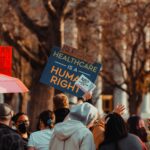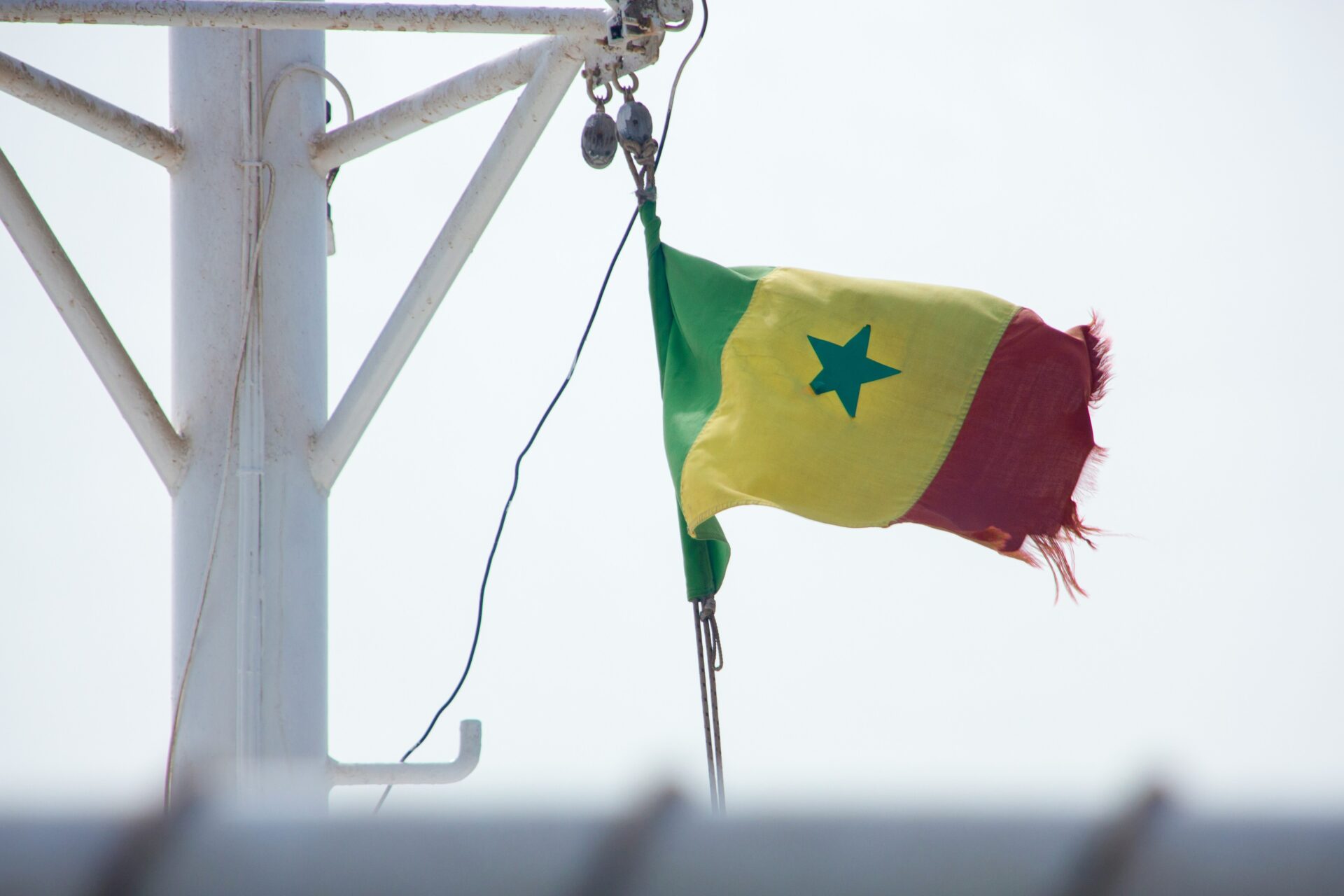Senegal’s dramatic transfer of presidential power this week highlights that West Africa, routinely seen as a zone of democratic erosion and failure, includes an arc of resilient coastal democracies — from Senegal to Liberia, Ghana and Nigeria. The Senegalese people’s resolute reversal of last month’s constitutional crisis shows that US and international efforts to counter violent extremism and military coups can reinforce a potent West African democratic constituency. Vital next steps include these: supporting Senegal’s democratic forces in shifting from “campaign mode” to inclusive governance; promoting economic investment to bolster youth employment and rule-of-law reforms; and energizing a West African democratic alliance against extremism and coups.
How Democracy Won
Senegal’s orderly inauguration of President Bassirou Diomaye Faye is a victory of the democratic resilience that is needed to reverse Sahelian West Africa’s slide into chaos, and prevent its vastly more disruptive spread to the five-times-more-populous West African coastal states. This peaceful transfer of power, Senegal’s fourth since its independence, serves as a national rejection of former President Macky Sall’s attempt, a month ago, to unconstitutionally postpone the vote and extend his term in power. The March constitutional and political crisis followed years of Sall’s progressive suppression of independent political voices and manipulation of the judiciary and elections.
Senegalese democracy defeated this assault through a reassertion of democratic will that was critically strengthened by quick, well-calibrated support from democracies abroad. Senegalese responded through homebred democratic culture and institutions. Their resistance included young street protesters, religious leaders and civil society. Some 40 civil society groups quickly formed an alliance, called Aar Sunu Election (Protect Our Election), that joined opposition parties to demand adherence to the law. After Sall worked for years to manipulate Senegal’s constitutionally independent judiciary, last month’s national outcry buttressed Senegal’s Constitutional Council in reasserting judicial independence and reversing Sall’s order. Sall backed down, scheduling the election and releasing Faye and other political prisoners just 10 days before the vote.
Alongside Senegal’s democratic culture and institutions, the professionalism and patriotism of its armed forces was essential. Amid rising turmoil under Sall and public discussion about whether they might seize power, Senegal’s soldiers abstained from any such move, meeting the expectations of their fellow citizens and presenting a pro-democracy model for other West African militaries. Also critical was that the officeholder assaulting democratic norms in his bid to retain power was a politician, not a military ruler or a warlord facing trial upon being deposed.
How International Support Helped
While international responses have failed to seriously confront democratic erosions in many African nations, the response on Senegal was fast, firm, united and calibrated. French President Emmanuel Macron, Secretary of State Antony Blinken and other foreign officials called Sall to urge a quick return to what the United States pointedly called “Senegal’s strong democratic tradition.” The African Union, European Union and United States all spoke in similar terms, along with West Africa’s regional bloc, ECOWAS (the Economic Community of West African States). In speaking respectfully of Senegal’s own democratic traditions, this modulated diplomacy avoided giving Sall or his supporters a way to stir a nationalist backlash.
Senegal’s preservation of democracy — and the contrasting failures to do so over a decade or more in neighboring, coup-stricken states of Guinea, Mali, Burkina Faso and Niger — offer lessons for action. The core, long-term policy failure in the coup-damaged states has been to ignore slow erosions of democratic institutions — freedoms of speech, press and assembly — so that when political crisis strikes, neither local citizens nor outside partners have the kind of energetic civil society, press, democratic culture and judiciary that just saved the day in Senegal.
Alongside Senegal’s democratic culture and institutions, the professionalism and patriotism of its armed forces was essential.
In Guinea, as President Alpha Condé progressively weakened democracy — suppressing free speech and finally manipulating a constitutional referendum to give himself an unprecedented third term in office — African and international democracies failed to respond effectively. The country’s 2021 coup was the result. In Mali, Burkina Faso and Niger, the spread of jihadist violence — and the military-led responses supported and funded by Western democracies — corroded democratic institutions, including civil societies, opening the path to armed coups d’état. Notably in Niger, African and international democracies failed to actively oppose the narrowing of civic spaces and imprisonment of journalists that opened paths for a coup. And when it struck last year, Niger’s democratic forces and partners in the region and beyond — the United States, France and ECOWAS — failed to act in concert as they just have done in Senegal.
Build a West Africa “Democratic Alliance”
While policymaking and public discourse must stay focused on the four West African states (and their more than 85 million people) under military rule, failed democracies are not West Africa’s only reality. Democracies that have shown significant resilience — Senegal, Liberia, Ghana and Nigeria (as well as the island nation of Cape Verde) — govern three times as many West Africans, more than 274 million, who represent fully 65% of those in the 15-nation ECOWAS bloc. Each of these democracies faces daunting challenges to its democratic systems: unemployed, desperate youth; corruption; lack of investment; climate shocks and others.
Independent analyses of their quality of governance, democratic freedoms and levels of violence show their varied strengths and weaknesses. But Senegal’s democratic victory this week buttresses this group and offers a new opportunity to help it consolidate into a potent, pro-democracy alliance.
At home, Senegal must strengthen democratic institutions. The most urgent need is better opportunities and livelihoods for millions of citizens, most of them young, who are unemployed, economically impoverished, under-educated — and desperate. Over 60% of Senegalese are 25 or younger; 20% of youth are unemployed; 90% of citizens depend on “informal” work with no social protections; and Senegalese increasingly risk death in dangerous Saharan or ocean crossings, fleeing toward to any hope for their lives in Europe.
To leverage Senegal’s emergence from constitutional crisis in favor of West African democracy, U.S., international and African partners must weigh policy initiatives that include three vectors:
Energetically support vital political dialogue and problem-solving in Senegal. Faye and Senegal’s democratic forces now must shift from populist mobilizing to democratic problem-solving. International partners should quietly campaign with all Senegalese political elites to build on the accommodating post-election discourse among Faye, his chief rival (and Sall’s ally) in the election, and Sall. They should support Senegal’s civic and democracy activists in leveraging their recent alliance with political parties, notably Faye’s coalition, to pass government reforms to better prevent democratic erosions.
Build an initiative, with Senegalese, African and international business sectors, to seek new investments in Senegal as part of bolstering youth employment, strengthening the rule of law and advancing anti-corruption reforms. Democracy advocacy in Africa has too often overlooked the power of investment to drive such reforms. Following economic shocks from COVID and Russia’s war on Ukraine, Sall’s government invested heavily in railways, roads and other infrastructure, but those steps, while needed, did not improve immediate economic conditions for poor citizens. Senegal is on the cusp of opening oil and gas fields that will boost its gross domestic product; a vital question for Faye’s government, businesses and Senegal’s marginalized millions will be how that new income is distributed. Faye has sought to balance his appeal for deep reforms to help impoverished Senegalese, particularly youth, with assurances to investors of a stable investment environment. In a very real way, Senegal’s youth saved their democracy. To keep it, now democracy has to deliver for them.
Leverage Senegal’s success in supporting a focused alliance of West African democracies to lead ECOWAS and the region. For Africans and international partners, democracy support requires a “long game” that meets each country where it is, not where we wish it were. A bipartisan study group convened by USIP recommended in January a strategy to partner with local and regional actors more broadly than in the narrower stabilization efforts so far that have focused heavily on security. One lesson of the Senegal-vs.-Guinea contrast is that investment in civil society is vital — and cost-effective in the long run. African and international partners need to match this “long game” of democracy-building with a sophisticated “short game” of crisis response. In the case of Senegal, they applied the needed steps for that “short game,” helping to avoid disaster. Senegal’s survival of a constitutional crisis reaffirms it as a potent partner and example in building democracy across West Africa. President Bassirou Diomaye Faye’s victory signals that young leaders can win power through ballot boxes and not through bullets. Many Africans hope that others in the region will follow his example.
This article was originally published by the United States Institute of Peace.





















